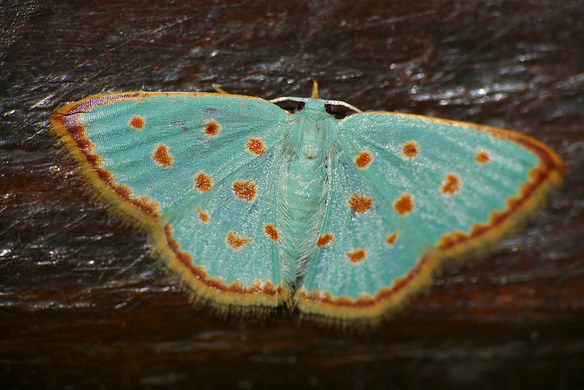
Not surprisingly, bug experts have theories. For instance, some species migrate, so perhaps their internal navigation systems become confused by the presence of artificial nighttime light. Trouble is, most moths do not migrate, so this idea leaves a lot of 'splaining to do.
Others have postulated that it has something to do with the moth's desire to sleep or procreate. But there are gaping holes in these theories, too.
“For now,” says Live Science, “the question must remain one of life's biggest little mysteries.”
But hold on – maybe there is an easy and logical explanation, at least for the open-minded among us: Perhaps God created moths to demonstrate that nocturnal life is highly undesirable, that joy can only be found in seeking the light.
After all, the Bible has plenty to say about darkness and light.
As the apostle John wrote in chapter 3 of his gospel, “And this is the condemnation, that the light has come into the world, and men loved darkness rather than light, because their deeds were evil.” Maybe He has programmed moths to flee darkness and seek the light, to show us that even creatures with the tiniest brains have more sense than most humans.
Or perhaps moths are a living illustration of the proper response to the teachings of the apostle Paul, who was sent by Christ to the Gentiles “to open their eyes, in order to turn them from darkness to light, and from the power of Satan to God, that they may receive forgiveness of sins and an inheritance among those who are sanctified by faith in Me” (see Acts 26).
There is, after all, safety in light, as Paul implied in Romans 13: “let us cast off the works of darkness, and let us put on the armor of light.”
There is also knowledge in light, he added in 2 Corinthians 4: “For it is the God who commanded light to shine out of darkness, who has shone in our hearts to give the light of the knowledge of the glory of God in the face of Jesus Christ.”
And there is freedom in light, he pointed out in Colossians 1: “He has delivered us from the power of darkness and conveyed us into the kingdom of the Son of His love.”
Do moths want safety, knowledge, and freedom, just as we do? I don't know; but I don't suppose any human does.
But okay, maybe that’s a stretch. Maybe moths simply want to be with their Creator, who said, “I am the light of the world. He who follows Me shall not walk in darkness, but have the light of life” (see John 8).
I’d say that any of these explanations beats what entomology has to say on the subject. And each one has the added advantage of providing us with insights of eternal significance.

 RSS Feed
RSS Feed